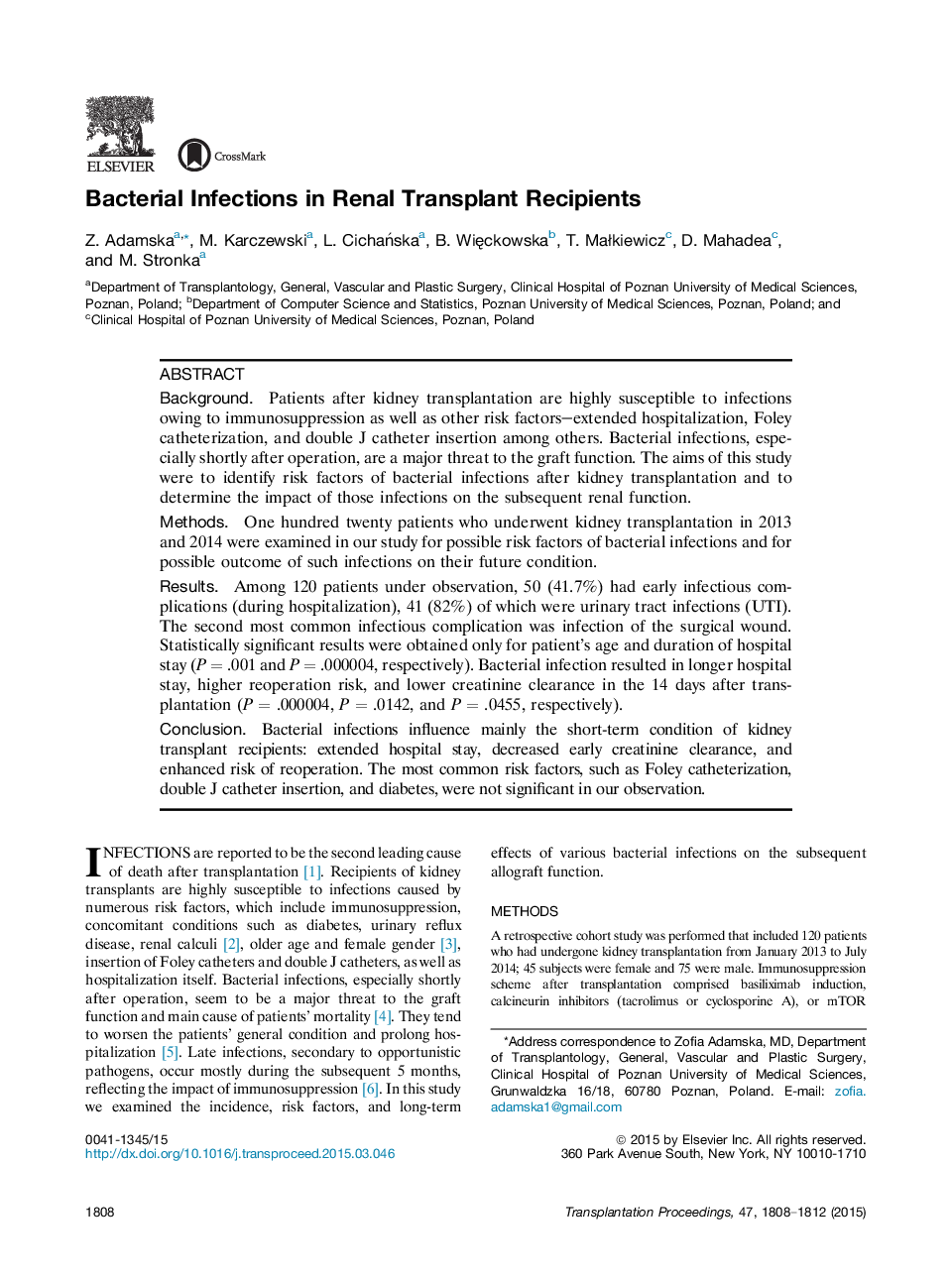| کد مقاله | کد نشریه | سال انتشار | مقاله انگلیسی | نسخه تمام متن |
|---|---|---|---|---|
| 6247190 | 1284514 | 2015 | 5 صفحه PDF | دانلود رایگان |
- We have examined the risk factors of bacterial infections in renal transplant recipients and determined that only age of the patient and length of hospital stay increase that risk significantly.
- Every day of hospital stay increases the risk of infection 1.16 times.
- Bacterial infections cause longer hospital stays, worsen early graft function, and increase reoperation rate in patients after kidney transplantation.
BackgroundPatients after kidney transplantation are highly susceptible to infections owing to immunosuppression as well as other risk factors-extended hospitalization, Foley catheterization, and double J catheter insertion among others. Bacterial infections, especially shortly after operation, are a major threat to the graft function. The aims of this study were to identify risk factors of bacterial infections after kidney transplantation and to determine the impact of those infections on the subsequent renal function.MethodsOne hundred twenty patients who underwent kidney transplantation in 2013 and 2014 were examined in our study for possible risk factors of bacterial infections and for possible outcome of such infections on their future condition.ResultsAmong 120 patients under observation, 50 (41.7%) had early infectious complications (during hospitalization), 41 (82%) of which were urinary tract infections (UTI). The second most common infectious complication was infection of the surgical wound. Statistically significant results were obtained only for patient's age and duration of hospital stay (PÂ = .001 and PÂ = .000004, respectively). Bacterial infection resulted in longer hospital stay, higher reoperation risk, and lower creatinine clearance in the 14 days after transplantation (PÂ = .000004, PÂ = .0142, and PÂ = .0455, respectively).ConclusionBacterial infections influence mainly the short-term condition of kidney transplant recipients: extended hospital stay, decreased early creatinine clearance, and enhanced risk of reoperation. The most common risk factors, such as Foley catheterization, double J catheter insertion, and diabetes, were not significant in our observation.
Journal: Transplantation Proceedings - Volume 47, Issue 6, JulyâAugust 2015, Pages 1808-1812
